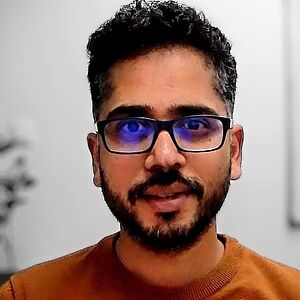
Siddharth Sivankutty
Home
About Us
Our research focuses on the design and coherent control of photonic systems that operate in the nonlinear regime. These systems are of particular interest due to the complex interplay of different dimensions, such as space, time, and polarization. By integrating machine learning techniques, we aim to unlock new experimental possibilities for controlling light-matter interactions in complex systems and leverage these insights to perform computation with photons
We are broadly interested in
- Nonlinear optics in multimodal photonic systems
- Development of novel models of neural networks using photons.
- [And for fun and historical reasons] Computational and nonlinear imaging through fibers aka. lensless endoscopes
We employ a range of experimental platforms, such as multicore fibers, photonic lanterns, and multimode fibers. These fiber-based technologies offer a high degree of customization, enabling tailored light-matter interaction. Our close collaboration with the Fiber-Tech Lille allows us to control all aspects of development, from design to fabrication and post-processing of novelty fibers. This enables rapid iteration of experimental designs and accelerates the time from conception to experimental realization.
Located at the IRCICA and PhLAM labs, our research is situated within an ecosystem of various research activities on bio-inspired neural computing architectures and nonlinear fiber optics.
Interested in joining us?
We are always on the lookout for talented post-doctoral fellows, graduate students and master interns to join our group! We expect a few fully funded positions to be open in the fall 2023 - so now is a good time to get in touch. Our focus is on physical information processing, nonlinear optics in multimode system and computational imaging.
For post-doc candidates
For post-doctoral fellows, it would be particularly helpful if you have experience working with ultrafast lasers, optical waveguides, spatial light modulators and have a keen interest in applied math and computational neurosciences.
Joining a young PI's team may seem daunting, but rest assured that you will be at the forefront of new and exciting research in a well-equipped lab. We offer remarkable flexibility for you to define and lead projects based on your interests within the framework of our team. Before joining the CNRS, I was the first doctoral student in a group at Paris-Saclay, and later the first post-doc of a tenure-track researcher at Marseille. These experiences, together with working in a dynamic start-up, have greatly influenced my thinking on how teams can come together to solve challenging, open-ended problems. You will be right at the center of our team at Lille. We would be thrilled to support you in establishing your own independent research track-record, acquiring funding, and helping you transition to a tenured position.
In short, bring your ideas and let us do the exciting first experiments together, so you can eventually take them with you!
For PhD candidates and master students:
The typical PhD duration in the french system lasts about three years. This will require you to operate in a project-mode during the initial phase. Once we have ensure that the basic requirements are met, then we will move to a more independent and open-ended approach. I strongly believe that the end goal of a PhD is not quantified by the number of journal articles or impact factor, but rather by your development as an independent researcher. So you will be encouraged to push your research activities along directions that you find motivating and interesting within these broad areas, and I will be glad to help you find your place in the grand scheme of things.
As for our Master students, you get to have all the fun. We offer the exciting opportunity to work on our riskiest and craziest ideas. And we encourage you to continue working with us on a PhD after completing your master's thesis/internship.
Attention: The intake for PhD students is usually in fall, but application deadlines are in the beginning of May.
Achtung: Our working style may not be suitable for candidates who prefer to work in a cloistered fashion. Our team spends roughly the same amount of time cursing at lasers, computers, and whiteboards! Similarly, we do not distinguish between fundamental and applied research.
(more to come)
Collaborators
Université de Lille, France
Esben Andresen, Associate Professor
Géraud Bouwmans, Professor
Arnaud Mussot, Professor
UC Louvain, Belgium
Laurent Jacques, Professor
Institut Fresnel
Hervé Rigneault, Research Director
Miguel Alonso, Professor
Open positions
Master thesis and internships
Topics include
- Design and implementation of a 4f spectral shaper - Master thesis
- Parallelization schemes for computing the MM-NLSE - Master thesis
- Implementation of a compressive imaging system using a spatial light modulator - Master thesis
- Automation of data-acquisition system
Hands-on experimental optics-lab experience and a keen interest in programming/numerical methods are expected.



